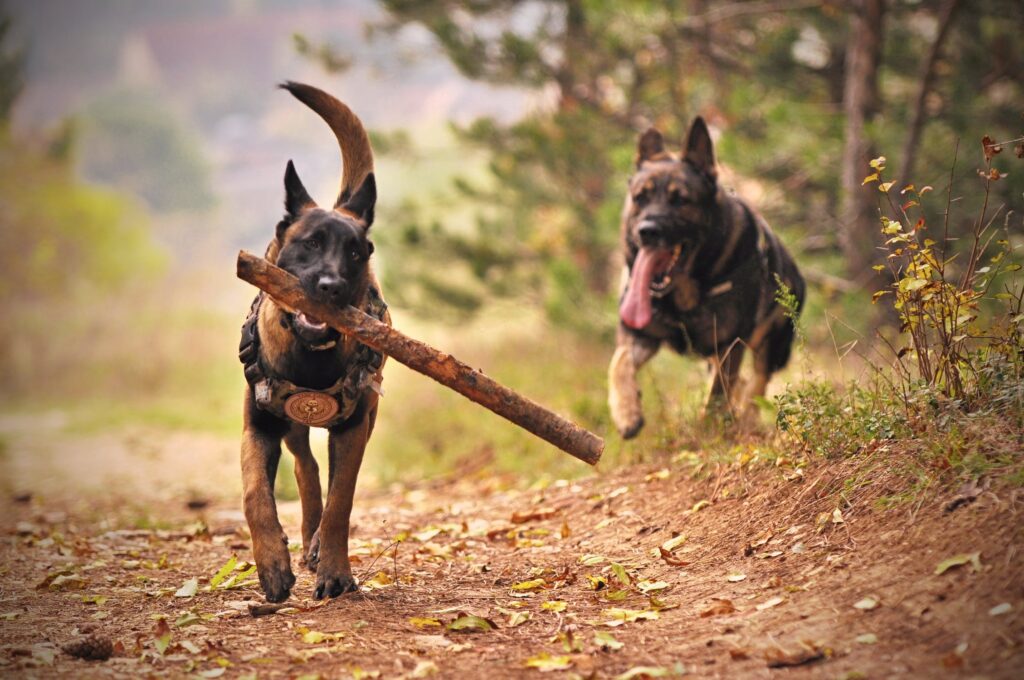Useful Tricks On How To Keep Your Dog Healthy

Image Source
Health is something we can all agree on. Regardless of breed, size, or even temperament there is one thing that remains the same – every dog needs to be healthy in order for us to enjoy them as pets and companions. Of course, no time is more important than puppyhood; but even if you buy a pup from a breeder there are things you need to know in order to ensure that your dog goes on to live a long and healthy life.
Dog Teeth Cleaning
Toothpaste designed for dogs is the most effective way of keeping your pet’s teeth clean and healthy; especially if they have a tendency to develop plaque or tartar (which can lead to more serious problems such as gum disease). While brushing your dog’s teeth at home might be
difficult it is worth doing as often as possible! If you don’t own a toothbrush for pets then use a soft-bristled ‘human’ toothbrush instead under running water, which will help remove any dirt and grime from their mouth. Never use toothpaste for humans on your pet though and avoid those that contain xylitol. This sweetener is toxic to dogs.
Also, let your dog rinse their mouth after brushing with a dog water fountain to encourage a healthy dental hygiene habit in them. Water fountains are not just used for drinking and hydration but can also be used for dental care for your dogs. It may not be possible for you to rinse your dog’s mouth after brushing them, but they can take care of the rest using this device.
As to the frequency of brushing, brush your dog’s teeth at least twice a week (once a week for small breeds) and make use of dental chews to prevent plaque buildup and gum disease. If you see signs of bleeding – do not hesitate – go to the vet immediately!
Dog Breed Size And Nutrition
If you buy a large breed pup, like an English mastiff, do not feed him lots of small meals throughout the day. This will not help him develop a healthy stomach and can lead to bloat (which can be fatal).
Instead feed your puppy one meal per day, as much as the dog is capable of eating at once. Also, when feeding a pup of any breed, make sure you are using high-quality food. Poor food won’t provide your pet with the nutrients he needs to develop properly and can lead to future health issues.
As with most dogs, small breeds should be fed one meal per day when they are puppies in order to avoid hypoglycemia when the dog is older. Also, make sure that when you feed your pup they have access to water throughout the day in order to keep hydrated and prevent bloat later on in life (which can also lead to death).
Give Your Dog Proper Exercise
Lack of exercise is harmful to your dog’s health, welfare, and quality of life in many ways so it’s always best to keep them active! Even if you can’t take them for a long or intense walk every day try playing with them instead in your backyard (or local park) at least once every other day.
Joint conditions are one of the more common problems that large breed dogs face. When they are puppies it is very important that you keep them at a healthy weight (gaining about 1lb per month) in order to prevent future joint problems like arthritis, hip dysplasia & pano or cruciate ligaments, which can be fatal if not treated correctly by an early age.
With regular exercise and weight monitoring, you can maintain healthy growth in your puppy. Also, make sure not to overexert your dog. Canine hip dysplasia can affect canines, especially large breed dogs. One symptom of this condition is limping; although it may come on gradually over time, make sure to take note if your pup begins limping after strenuous activity.
Ensure Complete Dog Vaccinations
There are a number of vaccinations that your dog will require throughout its life in order to keep them healthy and prevent numerous deadly diseases.
These include Distemper, Hepatitis, Leptospirosis & Parvovirus (usually given at 6-7 weeks old), Parainfluenza virus (also usually given at 6-7 weeks old), Bordatella bronchiseptica (commonly known as kennel cough), and Rabies, which is typically given between 12-16 weeks old. Consult your veterinarian regularly and keep records of the vaccinations taken to ensure that all the needed vaccinations are applied.

Image Source
Keeping your puppy or dog healthy is crucial to its happiness. The above tips are good ways to reduce the chance of illness, but there are other things you can do as well. Be sure to ask your veterinarian for advice on ways to keep them healthy and what to do if your dog becomes ill.
